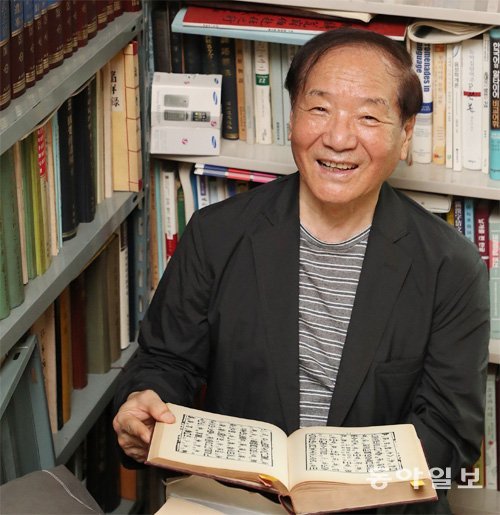Potters of Joseon laid foundation for the Meiji Restoration
Potters of Joseon laid foundation for the Meiji Restoration
Posted August. 25, 2020 07:25,
Updated August. 25, 2020 07:25

The Song of Joseon was a popular song during the Japanese invasions of Korea of 1592-1598. Although it was mostly forgotten on the Korean Peninsula after the wars, it continued to be sung by Korean potters who were taken to Japan and their descendants for quite a while. The Song of Joseon was only sparsely studied in the early to mid-20th century in Japan.
This changed when Jung Gwang, emeritus Korean literature professor of Korea University, found references to the song at a Kyoto University library, which brought the song to the attention of many Japanese scholars. Thirty years after Professor Jung published the book entitled “The Song of Joseon” in Japanese, the Korean translation has been recently released. The Dong-A Ilbo met him at his house in Seoul’s Nowon District on Thursday to discuss his new book.
Professor Jung has long argued that the Japanese invasions of Korea laid the foundation of Japan’s modernization. Korean printing, ironwork and engineering experts were taken to Japan, which enabled drastic development and the Meiji Restoration. “Before the invasions, Japan was not a strong nation filled with powerful feudal lords,” he said. “It is estimated that it took a skilled workforce of 40,000 to 50,000 from Joseon, which is equivalent to 400,000 to 500,000 today, to develop the country.”
Among them were 82 potters from Namwon, North Jeolla Province who made white porcelain in Kagoshima. “Records show that Japan made a profit by selling more than seven million pieces of porcelain to Western countries,” Professor Jung said. “Daimyo bought Western weapons with the money which they used for a revolt, which led to the Meiji Restoration and Japan’s modernization.” He then added that the stories of Joseon’s potters are proof that the skills of the Korean Dynasty laid the foundation of the Meiji Restoration.
Go-Ya Choi best@donga.com







